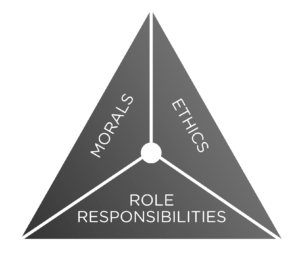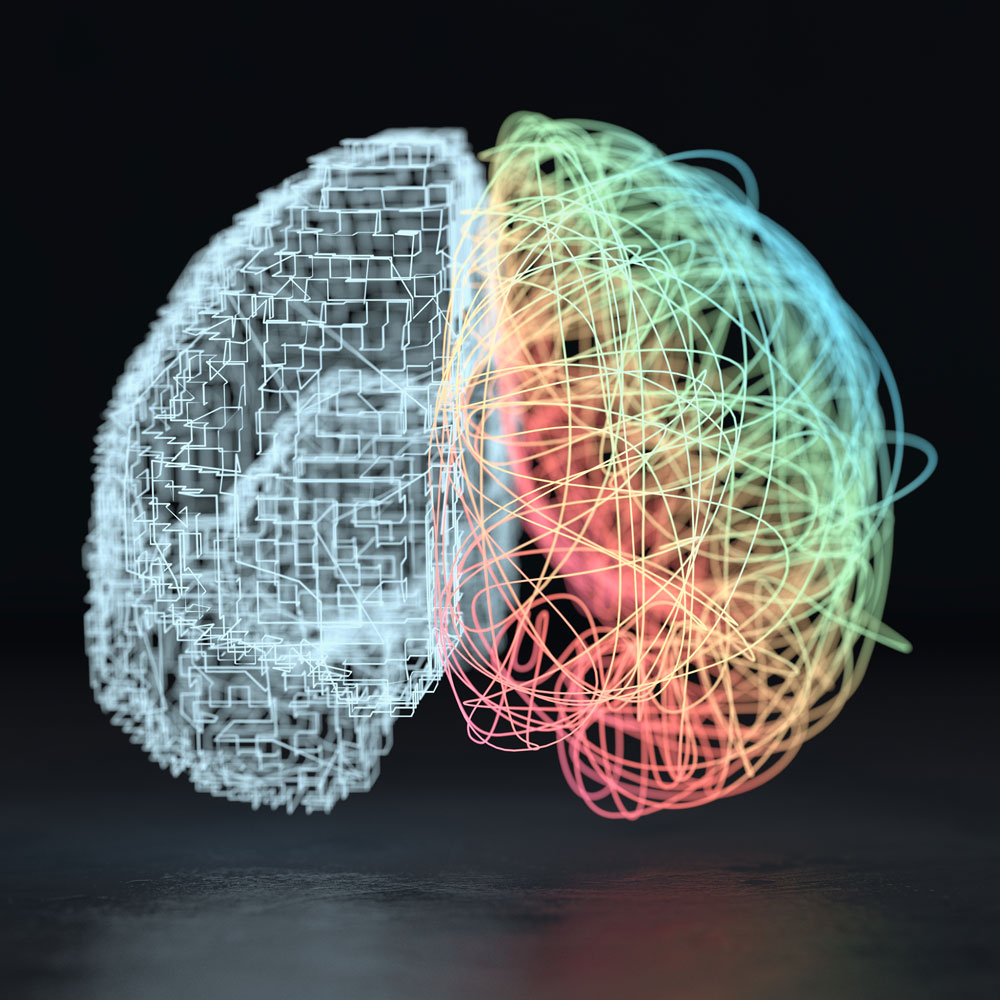Most difficult decisions are not difficult because we lack information but because we are juggling three subjective dimensions: moral, ethical, and our role responsibilities. While there are black and white absolutes that cross all boundaries, we live in a world that presents us with gray areas and nuances. Knowing how to apply your morals and ethics in the context of your job is critical to effective decision-making.
We like to think we are objective, but the circumstances often call for subjectivity. Machine learning and artificial intelligence are not bias-free and can’t tell us what to do and the consequences of our decisions. We have to rely on our judgment, and our ability to make those judgments skilfully is informed by what’s going on inside of us, what’s going on around us, and what we understand is expected of us.
This presents us with the Moral-Ethical-Role Responsibility Triangle.

- Morals refer to your own internal sense of what is right and wrong, shaped by upbringing, family, community, identity, and faith
- Ethics relates to context-specific principles around what is acceptable in your organization or society
- Role responsibilities is your understanding of the responsibilities associated with your role in the organization
It works like this: If my role requires me to engage in activities that are generally considered acceptable (ethics) but that I personally believe to be wrong (morals), the moral and role responsibilities dimensions of the triangle are in conflict. In those cases, I use my morality to challenge my role responsibilities (a one-time proposition), or I can look to contextual ethics – what does the world at large have to say about what I am being asked to consider or do? – to help me to test the extent and depth of my morality.
I could quit (a one-time option), but the goal is to stay engaged and lead even when you are navigating contradictions. The Moral-Ethical-Role Responsibility triangle framework helps to sort out the issue in our mind in relation to our decision-making ecosystem when dealing with difficult decisions.
The intersection of these three constructs informs how we make decisions: what we believe at our core; what we understand to be acceptable in our current sociocultural or sociopolitical context; and what we commit to, explicitly and implicitly, by taking on a role—formally or informally—in an organization, a community, or even a family. When these align, decision-making is easy. When they do not—and for the most difficult challenges, they usually don’t—our ability to understand each element on its own, and sort through their apparent conflict, is at the heart of whether we can make difficult decisions with skill, insight, and empathy.
Knowing your moral boundaries, the ethical context of the times you lead in, and your understanding of your role will help to strengthen your ability to make difficult decisions when you are called upon to do so. Your job as a leader is to affirm the decision you’ve made—to reflect on how you got there, be clear about what you plan to communicate about both the decision and the process of arriving at it, and to whom you intend to communicate and how to match your message with their priorities and belief and interests.









